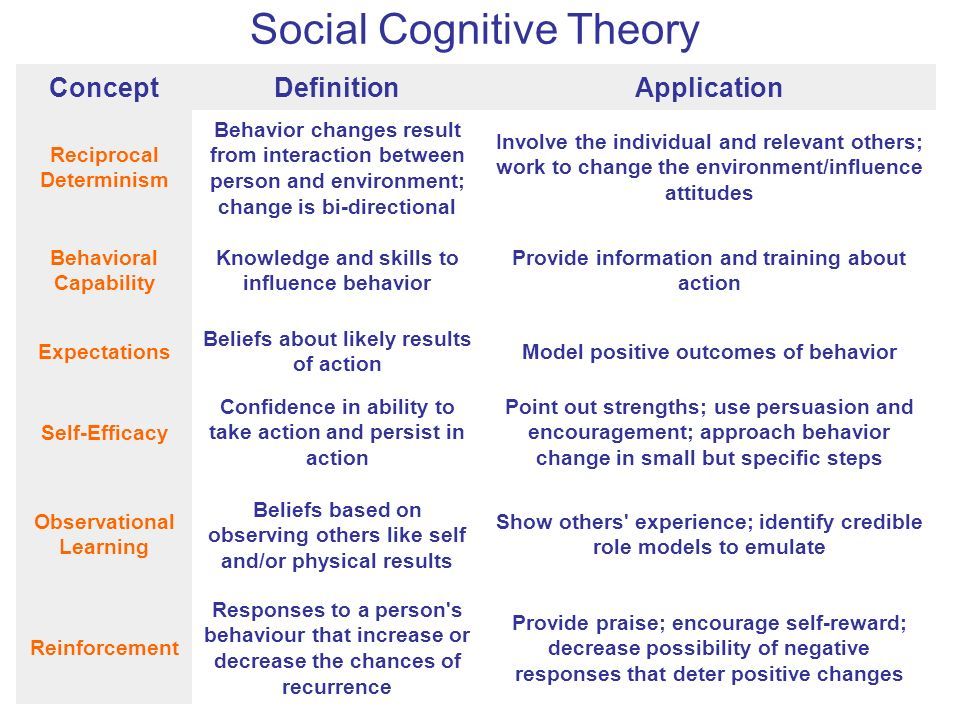Why am i afraid of failure
How to Overcome Atychiphobia, Fear of Failure
It is often normal to feel scared or have doubts when you are about to try something new. It can be committing to a relationship or engaging in unusual situations you’re not accustomed to. Fear is a natural human emotion that signals you to be cautious about your actions.
To some people, fear keeps them focused. However, if you have a fear of failure and it holds you back from achieving your best self, this may have developed into a phobia.
Having a fear of failure is universally recognized as a phobia. It is defined as an irrational feeling of fear of a certain object or situation. Do you think you have a fear of failure? Atychiphobia is real. But never let it hinder you from being the best version of yourself.
What Is Atychiphobia?
The fear of failure in a particular endeavor is experienced by most people one way or another. But irrational and extreme fear of failing or facing uncertainty is a phobia known as atychiphobia.
Everyone may not experience it, but this kind of phobia has its level of severity from mild to extreme. The fear of failing is also linked to anxiety or mood disorder that affects one’s mental health and quality of life.
Irrational fear of failure could be caused by a traumatic event that a person experienced in the past. This traumatic experience can make a person doubt their abilities, making them believe that they are not good enough to try new things. Severe atychiphobia keeps a person confined within their comfort zone and prevents them from moving forward in life.
Fear of Failure
Failure is a stepping stone for achievement. It helps you learn from your mistakes and can propel you to move forward in your career. If you fail at something, it does not mean that you have to stop there.
Rising from failure is a sign of progress. When you do, you learn and take new steps to achieve your dreams.
The fear of failure may have developed during childhood or a certain point in life where embarrassment, bullying, or trauma was experienced due to failing at something.
Atychiphobia can bring a positive or negative consequence in your life, depending on how you manage it. Some people develop a standard close to perfection and strive for excellence since they are afraid to fail. These people are referred to as perfectionists.
Risk Factors
There are a lot of reasons behind the development of phobias. But no matter how they started, it can always lead to negative effects on mental health, beliefs, emotions, and human behavior.
These fears are the results of how the brain is affected by stress. If atychiphobia is not managed correctly, it can cause repeated failures and become a person’s default mindset. Here are the risk factors that have been seen to cause atychiphobia.
- A perfectionist failed at something that had important consequences that really affected their life or job.
- Negative imprints from a childhood experience. An example would be failing an exam and your teacher embarrassed you in front of the class for it, or you were bullied by your peers because of it.
 These bad memories linger through adulthood and become a phobia.
These bad memories linger through adulthood and become a phobia. - A traumatic event where you felt socially humiliated. This discouraged you from giving a presentation in front of colleagues or public speaking.
- When your self-perception depends on how others see you, and you don’t want them to look at you as a failure. This belief can lead to your fear of failure.
Symptoms of Atychiphobia
Having fears could prevent you from achieving your life goals. The fear of failing at something could be a real life struggle when a person keeps avoiding certain situations for fear that they might be embarrassed or disappointed without even giving it a try.
Fear of failure is not something that you can ignore or turn your back on. It can influence a person’s mental health and cause severe depression and anxiety if not appropriately addressed.
Here are some of the physical and emotional signs and symptoms that you have a fear of failure:
Physical Symptoms- Insomnia or sleepless nights related to overthinking and severe anxiety
- Stress causing chest pains
- Easily panics with symptoms of profuse sweating, digestive distress, joint and muscle pain, splitting headaches, and difficulty breathing when faced with unanticipated situations
- Feelings of constant fatigue and tardiness due to lack of motivation
- Insecurities and excessive worrying about what will happen if they fail or go wrong
- Procrastination to avoid work or task assigned that triggered their anxiety
- Unnecessary rationalization of how something went wrong
- Exaggerated feelings of anxiety, fear, and panic when taking any sort of risk or new tasks with an outcome that they are unsure of
How Atychiphobia Affects Daily Life
Fear of failure is self-limiting and causes severe stress and anxiety. It can impair your present relationships, goal to succeed, and productivity.
It can impair your present relationships, goal to succeed, and productivity.
At home, school, or in the workplace, having atychiphobia will put you into isolation that later will lead to loneliness and depression. Failure to cope or find a treatment for atychiphobia can progress to more severe mental and physical illnesses that would be more difficult to treat.
Emotional Effects of Atychiphobia
Picking yourself up from where you fell gives you the confidence to do it right or better next time. Be it in your job or at school, experiencing failure is not a bad thing and should not be feared.
When you fear failure, you deny yourself the possibility of discovering a new ability or skill that you might have but never known since you were afraid to try. Atychiphobia is very limiting, and overcoming it can give you control over your future and life goals.
How to Overcome the Fear of Failure
You are still afraid of failing because your conscious mind is not in harmony with your subconscious mind. You want to focus on your goal and move forward, but the fears in your subconscious mind hold you back. Here are some tips on how to overcome atychiphobia:
You want to focus on your goal and move forward, but the fears in your subconscious mind hold you back. Here are some tips on how to overcome atychiphobia:
Do a little assessment check on yourself and know the root cause of how you develop your fear of failure or what causes you to fear failing. If you realize that your fear comes from your strong desire to want everything to be perfect, then shift your attention to how you can make progress instead of wanting things to be always perfect.
Remember the saying “progress, not perfection.” Enjoy the process of improving at something and allow yourself to fail on your first or second try. You become kind to yourself when you do this.
2. Determine If Your Efforts Are Really Leading You to SuccessIf you have behaviors like procrastination, identifying these self-sabotaging or destructive behaviors can help you change your mindset. You can also try to discover how you respond to stressful situations and replace such responses if they’re not making you more efficient.
You can also try to discover how you respond to stressful situations and replace such responses if they’re not making you more efficient.
Find a silver lining from your past failures and turn them into lessons. Looking at failures as another life challenge to help you learn and not as a roadblock to your future is an effective way to overcome your fear.
4. Face Your FearsRepeated exposures to events that started the phobias can help anxiety subside. Permit yourself to fail. Examine your feelings and thoughts about failure, expect the worst-case scenario, and believe that you will survive it.
The worst case that can happen may be disastrous, but overcoming it is an achievement and can be recognized as incredible growth. Even Elon Musk had to fail several times before becoming the success he is today.
5. Take ControlBe the boss of your thoughts and the situation you are in. If you feel that the projects given to you are overwhelming, break them down into manageable chunks and know the decision process that will set you up for success.
If you feel that the projects given to you are overwhelming, break them down into manageable chunks and know the decision process that will set you up for success.
Please do not feed your obsession with failure; finding a way to overcome it frees you from your worries. Also, you are not in this alone. There’s always your family or loved ones who can help you with your tasks.
6. Seek Medical Advice from a Mental Health ProfessionalLook into counseling or therapy or subscribe to online social media with support groups that focus on phobias to find more information about your fear of failure and how to handle it.
Treatments for Atychiphobia
Atychiphobia affects all ages and gender. Treatment options for fear of failure do not usually revolve around drugs and medication but therapy.
Find a therapist who can assist you with a specific type of therapy called exposure therapy. They can guide you on how to alter your response to situations that involve your fear of failure.
They will also gradually and repeatedly expose you to your fears while examining your related thoughts and ideas about them.
Talk therapy is another way to treat your fear of failure. Talk to experts who can motivate you to make lifestyle and behavioral changes. The core idea of talk therapy is to discuss the fear that has been bothering you or causing distress.
Take Control of Your Fear of FailureYour fear of failure is not innate. It is an acquired behavior. Therefore, it can be altered.
Fear is just a state of mind that controls your emotions and beliefs. Discovering the underlying conflicts that cause your fear of failure and resolving them instead of escaping them will give you a better chance to live free of self-doubt and fix your social relationships.
Failure can be hard, but it is much worse if you never try. All it takes is for you to get to the bottom of it all, so talk to a therapist or counselor from Kentucky Counseling Center now.
10 Signs That You Might Have Fear of Failure
Source: Florin Angelescu/Shutterstock
Everyone hates to fail, but for some people, failing presents such a significant psychological threat their motivation to avoid failure exceeds their motivation to succeed. This fear of failure causes them to unconsciously sabotage their chances of success, in a variety of ways.
Failing can elicit feelings such as disappointment, anger, frustration, sadness, regret, and confusion that, while unpleasant, are usually not sufficient to trigger a full-blown fear of failure. Indeed, the term is somewhat of a misnomer because it is not failure per se that underlies the behavior of people who have it. Rather, a fear of failure is essentially a fear of shame. People who have a fear of failure are motivated to avoid failing not because they cannot manage the basic emotions of disappointment, anger, and frustration that accompany such experiences but because failing also makes them feel deep shame.
Shame is a psychologically toxic emotion because instead of feeling bad about our actions (guilt) or our efforts (regret), shame makes us feel bad about who we are. Shame gets to the core of our egos, our identities, our self-esteem, and our feelings of emotional well-being. The damaging nature of shame makes it urgent for those who have a fear of failure to avoid the psychological threats associated with failing by finding unconscious ways to mitigate the implications of a potential failure—for example, by buying unnecessary new clothes for a job interview instead of reading up on the company—which allows them to use the excuse, “I just didn’t have time to fully prepare."
10 Signs You Might Have a Fear of Failure
The following are not official diagnostics—but if you feel that these criteria are very characteristic of you—very being an important distinguishing marker since we all feel these things to some extent—you might want to examine the issue further, either by doing more reading about it or talking to a mental health professional.
- Failing makes you worry about what other people think about you.
- Failing makes you worry about your ability to pursue the future you desire.
- Failing makes you worry that people will lose interest in you.
- Failing makes you worry about how smart or capable you are.
- Failing makes you worry about disappointing people whose opinions you value.
- You tend to tell people beforehand that you don’t expect to succeed in order to lower their expectations.
- Once you fail at something, you have trouble imagining what you could have done differently to succeed.
- You often get last-minute headaches, stomach aches, or other physical symptoms that prevent you from completing your preparation.
- You often get distracted by tasks that prevent you from completing your preparation which, in hindsight, were not as urgent as they seemed at the time.
- You tend to procrastinate and "run out of time" to complete your preparation adequately.
 (See procrastination expert Timothy Pychyl’s post about fear of failure.)
(See procrastination expert Timothy Pychyl’s post about fear of failure.)
What to Do When You Have a Fear of Failure
The primary problem with addressing fear of failure is that it tends to operate on an unconscious level. For example, you might feel it’s essential to finish writing out your Christmas cards because you promised to send them off by the end of the weekend—even though you’re also about to take your final exams.
But there are two important things you can do to conquer the maladaptive ways fear of failure can influence your behavior:
- Own the fear. It is important to accept that failure makes you feel both fear and shame, and to find trusted others with whom you can discuss these feelings. Bringing these feelings to the surface can help prevent you from expressing them through unconscious efforts to sabotage yourself, and getting reassurance and empathy from trusted others can bolster your feelings of self-worth while minimizing the threat of disappointing them.

- Focus on aspects in your control. Identify aspects of the task or preparation that are in your control and focus on those. Brainstorm ways to reframe aspects of the task that seem out of your control such that you regain control of them. For example, If you’ve failed to find work because you just don’t know "the right people," set the goal of expanding your network by going through your address book and Facebook and social media contacts, and reaching out to everyone you know who might help: Even if they are not in your field, they might know someone who is.
Copyright 2013 Guy Winch
How to overcome fear of failure and develop a growth mentality
Millions of people suffer from this condition. Emotional symptoms include feelings of powerlessness, anxiety, panic, and fear. It's atychiphobia, but most people call it the fear of failure, and it's largely instinctive. We are inherently risk averse, what scientists call safety aversion.
In today's world, we rarely face physical risks, and as a result, our brain tries to protect us from things like embarrassment and failure. Our ability to tolerate discomfort, even emotional discomfort, is so low that most of us prefer to eliminate all risks rather than take an alternative path that could bring more benefits. But choosing the safest options is more dangerous than you might think. To succeed, we must change the way we deal with failure.
The need for failure
Google, one of the most innovative companies in history, has attempted to identify the most important characteristics of successful teams. Their study, dubbed "The Aristotle Project," reached out to many people. What did you manage to find out? Psychological safety turned out to be the most important feature of the most productive teams:
“In a team with a high level of psychological safety, participants feel confident when they have to take risks in the presence of each other.
They know that none of their colleagues will judge or punish them for making a mistake, asking a question, or suggesting an idea.”
So there is an obvious connection between innovation and willingness to fail. In this era of change, companies that refuse to take risks end up falling behind competitors or going bankrupt. It is very important for survival that the willingness to take risks is an integral part of the culture of the organization. There are many examples in modern history when giant corporations died out like dinosaurs due to lack of innovation.
Some of the most brilliant minds were not only prepared for failure, but also welcomed it.
- “In my company, failure is an option. If you don't fail, then you're not innovative enough." Elon Musk
- "Celebrating success is great, but it's more important to learn from failure." Bill Gates
- “You must be ready to act. You have to be prepared for failure and failure, otherwise you won't achieve much.
 " Steve Jobs
" Steve Jobs
The Importance of Mentality
Babe Ruth is one of the greatest baseball players of all time. He was admired by millions of fans from around the world. Even people who don't care about baseball might know that he set the record for most home runs. But did you know that he also set the record for most strikeouts?
"The batter had to defend the house, hit the ball like in the sister game of cricket," writes biographer Robert Creamer in his book Babe: The Legend Comes to Life.
“But for Root, the strike-out was a fleeting, albeit disappointing, setback. Protecting the house didn't mean much to him." His style of play completely overturned established ideas about baseball. In an instant, he changed the game, making it the way we know it now.
"Every strike gets me closer to the next home run," Babe Ruth once admitted. For Babe, failure was the tool he used to achieve success.
“Unless you start seeing failure in a positive light, your people won't want to make a big difference,” says Charlene Lee, lead analyst at Prophet's Altimeter.![]() But in order to accept failure and accept it as an integral part of the team’s work, you need to change your mindset. Failure should not be viewed as a series of failures, but as a competitive advantage. In his book The New Psychology of Success. Think and Win,” Carol Dweck identified two mindsets: a fixed mindset and a growth mentality:
But in order to accept failure and accept it as an integral part of the team’s work, you need to change your mindset. Failure should not be viewed as a series of failures, but as a competitive advantage. In his book The New Psychology of Success. Think and Win,” Carol Dweck identified two mindsets: a fixed mindset and a growth mentality:
| Fixed mindset | Growth mentality | |
| Core belief | Intelligence is constant | Intelligence can be developed |
| Problems | Desire to avoid problems | Desire to solve problems |
| Obstacles | Give up easily | Persevere in the face of failure |
| Labor | Consider the efforts made useless | Seeing effort as a path to excellence |
| Attitude towards criticism | Ignore helpful feedback | Learn from criticism |
| Success of others | See others' success as a threat | Learn from and be inspired by the success of others |
(Chart based on Nigel Holmes chart)
A fixed mindset hinders growth and learning, while a growth mentality helps to perceive failure in a positive way and use it to move forward.
How to Overcome Fear of Failure and Develop a Growth Mindset in Your Organization
1. Take Every Opportunity to Learn
Rejoice in failure, because it gives you the opportunity to learn a useful lesson. After each project, get together with the team and discuss what experience can be used in the future. Invite participants to share which factors worked and which did not. If people are hesitant to share their opinion, start by discussing what you would like to improve on the next project.
As a manager or supervisor, you have an obligation to minimize risks. Help the team understand that you can't insure everything. A series of small failures will help you avoid a major failure in the future. This does not mean that we should strive for them. But it is important to remember that you learn from your mistakes.
2. Share feedback
Feedback is very important to correct your actions. The more often you get them, the better for everyone. Seek feedback from team members on a regular basis and provide feedback yourself whenever possible. By demonstrating your willingness to receive feedback, you set the tone for the entire team so that no one is embarrassed to speak their mind. When everyone learns to give honest feedback, it will become easier for them to receive it.
By demonstrating your willingness to receive feedback, you set the tone for the entire team so that no one is embarrassed to speak their mind. When everyone learns to give honest feedback, it will become easier for them to receive it.
If you receive constructive feedback, take note of it and let the reviewer know you took advantage of their suggestions. People will be more willing to share honest feedback if it works. Keep in mind that feedback should not be limited to criticism.
3. Praise the process
When things are going well, the performers are usually praised for it. But it is much more important to praise the process that led you to success. In the words of Carol Dweck, “If you believe that intelligence can be developed with some effort, then most likely you will have a positive attitude towards such efforts.”
Even if the project did not end the way you would like, you still look for factors that you can comment on. Emphasize the level of motivation of the team members, praise the teamwork and drive to get things done, or say a few words about the team members' perseverance. This will help your employees not give up and tune in to the best.
This will help your employees not give up and tune in to the best.
4. Fight groupthink
When the fear of failure increases, people begin to hide their thoughts and opinions. They will seek not to change the situation for the better, but to avoid mistakes. The best ideas don't come out of nothing, but are chosen from many others, both successful and unsuccessful. For brainstorming to be productive, give your employees time to generate new ideas. The idea is for each participant to come up with a dozen or so ideas from which you can choose.
Encourage divergent thinking and try to take your time when solving problems. And if the decision is made too quickly, encourage team members to think as big as possible. Designate someone as the devil's advocate. His task will be to challenge the most popular ideas and the flawlessness of the plan. And remember, diversity of opinion can be your greatest strength, so aim for it. Be sure to give each participant a chance to speak.
Be sure to give each participant a chance to speak.
5. Encourage employee development
As a manager, you have a responsibility to provide opportunities for learning and development for your subordinates. Emphasize the skills of each team member and treat them as resources that others can use. This will not only have a positive effect on team cohesion, but will also make people want to live up to high expectations and help others.
Mentoring is something every team member should do. Have them regularly share their knowledge, especially experience gained from mistakes. By doing so, you can capitalize on failure and help your employees grow and develop.
We fail together, we win together
We have three core values at Wrike: development, action and collaboration. Living by these values has helped us develop a culture of growth and overcome the fear of failure.
- Growth
Growth mentality helps us overcome challenges and innovate. We set ourselves ambitious goals that help us move forward with each new quarter. We strive for the best all the time.
We set ourselves ambitious goals that help us move forward with each new quarter. We strive for the best all the time. - Action
We, unlike many teams, do not spend time thinking about how things could have turned out. And small failures do not stop us. We put all our strength into work and in achieving goals. - Collaboration
Each of us has something to share and teach, and we believe that collaboration is the key to our success. We use the strengths of each other, and this helps us on the way to the goal. We fail together and we win together.
It may seem like a paradox, but the most important thing a team can do to keep themselves safe is to take risks. Working together, supporting the drive to grow, and helping each other recover from our mistakes has been key to our growth and can transform your team in the same way. By freeing yourself from the fear of failure and developing a growth mentality, you are on the path to success.
how to prevent him from ruining your plans and career
You would have opened your own business a long time ago / wrote a book / started working in a new direction, but you are afraid that nothing will work out? Unfortunately, such experiences ruined more than one career and crossed out many dreams. Why there is a fear of failure and how to deal with it, says career consultant Ulyana Khodorovskaya.
"I'm afraid I won't succeed."
I hear this phrase from almost every client who comes with a request for professional change. I would say that the fear of losing is often the main reason for losing, that this is the first thing to work with, but ...
The truth is, I'm afraid too. Every time I assemble a new group, when I work with a fundamentally new type of request from a client, I experience the fear that "I will not succeed." I was afraid that “it wouldn’t work,” even when I sat down to write this article.
At one time I came to the conclusion that it will never be possible to get rid of fear by 100%. It can be taken into account and weakened (so as not to interfere with action).
It can be taken into account and weakened (so as not to interfere with action).
In a sense, worrying about the outcome means that you are not doing a trifle, but an important thing for yourself. This is an indicator that the direction is right and the situation will really affect your life. Excitement can push you to extra effort, increased mindfulness, thorough preparation. The only question is whether it prevents you from moving forward or not.
See also
👑
Tue, 10/04 Career
4 fears that prevent you from finding your calling
If you act according to the principle of "squeaking, but climbing" - that is, you are worried, but moving towards the goal - everything is OK, you can close this article. It will be enough for you to simply consider your fear as an inevitable stage of any project. You can even add it to your calendar: "Monday, 12.00: 30 minutes of anxious reflection and excitement about whether it will come out or not. " And move on in peace, knowing that fear will come and go, like rain, autumn, elections, and the coronavirus.
" And move on in peace, knowing that fear will come and go, like rain, autumn, elections, and the coronavirus.
If fear prevents you from acting, then read on, this is written for you.
1. What happens if nothing really works out?
The worst thing here is the word “nothing”. It is associated with irreparable loss, despair and loss of faith in yourself forever. In practice, such an apocalypse happens very rarely, comes gradually and mainly due to great bad luck and inaction.
This fear can be dealt with in four stages.
- First, figure out what you might not be able to do. What specific result will you not achieve and in what time frame? The more clearly you define your "bad" result, the better. For example: “In two years I won’t get a leadership position”, “I won’t find a job within a year”, “Not 5000 people will visit my event, as I wanted, but only 300” and others.
- Now you can answer the question: “Why do I define THIS result as bad?”.
 What specific consequences will it lead to - monetary losses, temporary, reputational? Also, be as specific as possible. For example: “I'll write a bad article for Happy Monday and they won't want to work with me anymore. And my target audience will decide that I am not competent, and will not go to me for consultations.
What specific consequences will it lead to - monetary losses, temporary, reputational? Also, be as specific as possible. For example: “I'll write a bad article for Happy Monday and they won't want to work with me anymore. And my target audience will decide that I am not competent, and will not go to me for consultations. - In the third step, ask yourself, “What can I do to prevent this? How to insure yourself, who to turn to for help and support, how to strengthen yourself in this process? There are already a lot of options and space for action, and therefore less room for fear.
- And finally, “What will I do if I really get this particular bad result? Is it lifting for me, can I stand it? What resources do I have to deal with the consequences? Who will help me in this situation, and what can I do on my own? What's my plan B? How can I avoid the problems I faced last time?”
If you were able to answer all these questions for yourself, your fear turns into a clear understanding of the risks and a consistent plan for dealing with them. And this is already much easier.
And this is already much easier.
2. I didn't succeed before, therefore, I won't succeed now
It can be painful for us to relive our past mistakes. We know that this experience is inevitable, but it can be very unpleasant to experience it, no one taught us to be calm about our own mistakes. Therefore, we are afraid of situations that threaten future failures, everything is logical.
What can help if you are afraid to move forward for fear of making mistakes again? Detailed analysis of the previous situation.
See also
👑
Wed 26/08 Development
10 useful tips on how to develop self-confidence
- The first thing to do is to structure the situation of the previous error for yourself, briefly and clearly. What were the actors? What happened? In what order?
- Next, you can look at the consequences of the situation. What were your losses: monetary, temporary, emotional, reputational? Short term, long term? How did this situation affect you in general?
- On whom did the result depend? Was it purely your responsibility, or did someone share it with you? Hint: it almost never happens that the responsibility lies with someone alone.
 There is someone who set tasks and deadlines, there are colleagues and their contribution, clients, our overall workload, finally. Clarify for yourself what you really should be responsible for in that situation, and what not.
There is someone who set tasks and deadlines, there are colleagues and their contribution, clients, our overall workload, finally. Clarify for yourself what you really should be responsible for in that situation, and what not. - Have you had the opportunity to do things differently? Did you really have the knowledge, resources, contacts, strength, time, in the end, to influence the course of events? If so, why didn't they manage to use them? What was missing?
- What conclusions can you draw for yourself for the future? How will you act to avoid such mistakes in the future? What knowledge do you need to get, who to turn to for advice, so as not to get into the same situation again? What responsibility will you no longer take on?
If you manage to analyze a professional mistake on these points, then the fear of failure decreases in size and gives way to a plan of action - specific, clear, understandable. After all, mistakes are indeed inevitable. Our task is to do everything to cope with them.
Fear of failure can also be due to the "impostor syndrome". What is it and how to deal with it, Ulyana Khodorovskaya tells at the master class.
Details
3. This is not fear
If you looked at the previous two blocks and didn't recognize your situation, perhaps we are dealing not with fear, but with protection. Such an internal unconscious cunning to avoid a dangerous situation.
See also
👑
Thu 07/16 Career
How to improve the skill of positive thinking and what it will give
- You may not have enough resource right now. Ask yourself, are you exhausted, are you rested? If you have a million small tasks, a vacation was a long time ago, and a new big deal is on the horizon, fear will protect you from overspending. Recipe: relax, and then think about the new.
- You may lack information about the situation you are afraid of. The risks, the price you will pay for participating in the project, or the benefits that you will receive as a result are not fully known.
 In this case, the situation will have to be clarified first, and then proceed according to the scheme from point 1.
In this case, the situation will have to be clarified first, and then proceed according to the scheme from point 1. - The fear “I won't succeed” may be a disguised fear of success. And suddenly it happens, what then? You may have to work more than you are ready for, or face challenges that are not comfortable for you right now. In the end, you may have to be a completely different person than you used to think about yourself. In this case, you can ask yourself: “What exactly scares me about possible success?” And then proceed according to the scheme above.
Sometimes all of the above can be difficult to handle on your own. In this case, you should seek help from a coach, psychotherapist, career consultant. Or - just to friends who have already been in a similar situation and successfully coped with it. They can not only support you, but also give you important tips and share experiences.
I think that the fear of failure cannot be overcome once and for all.














